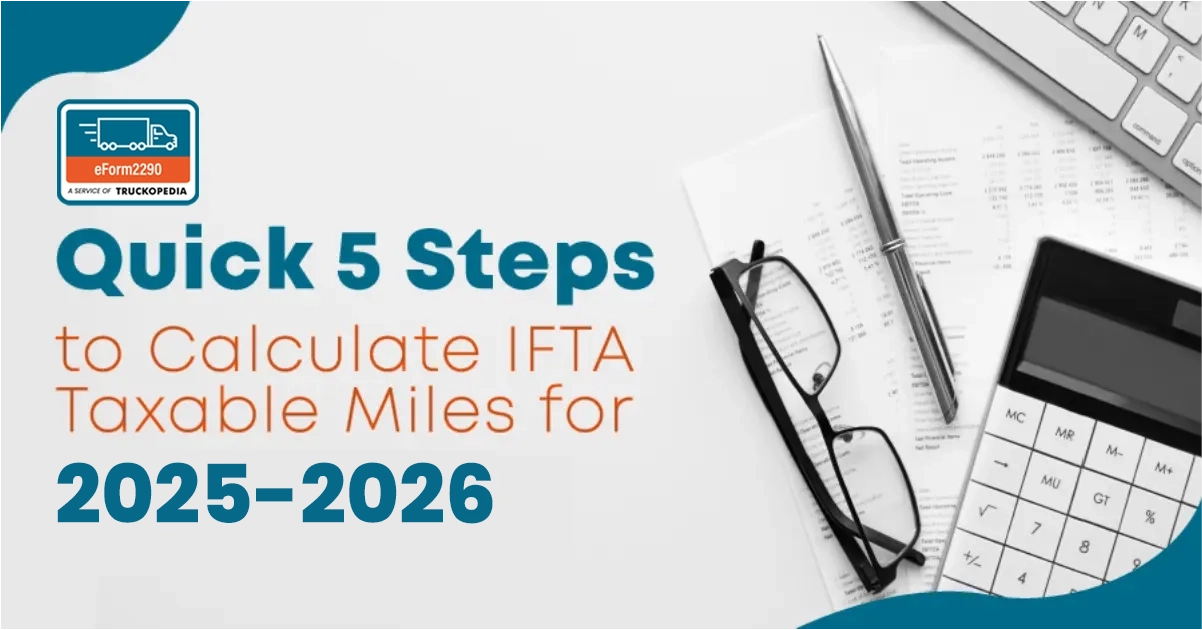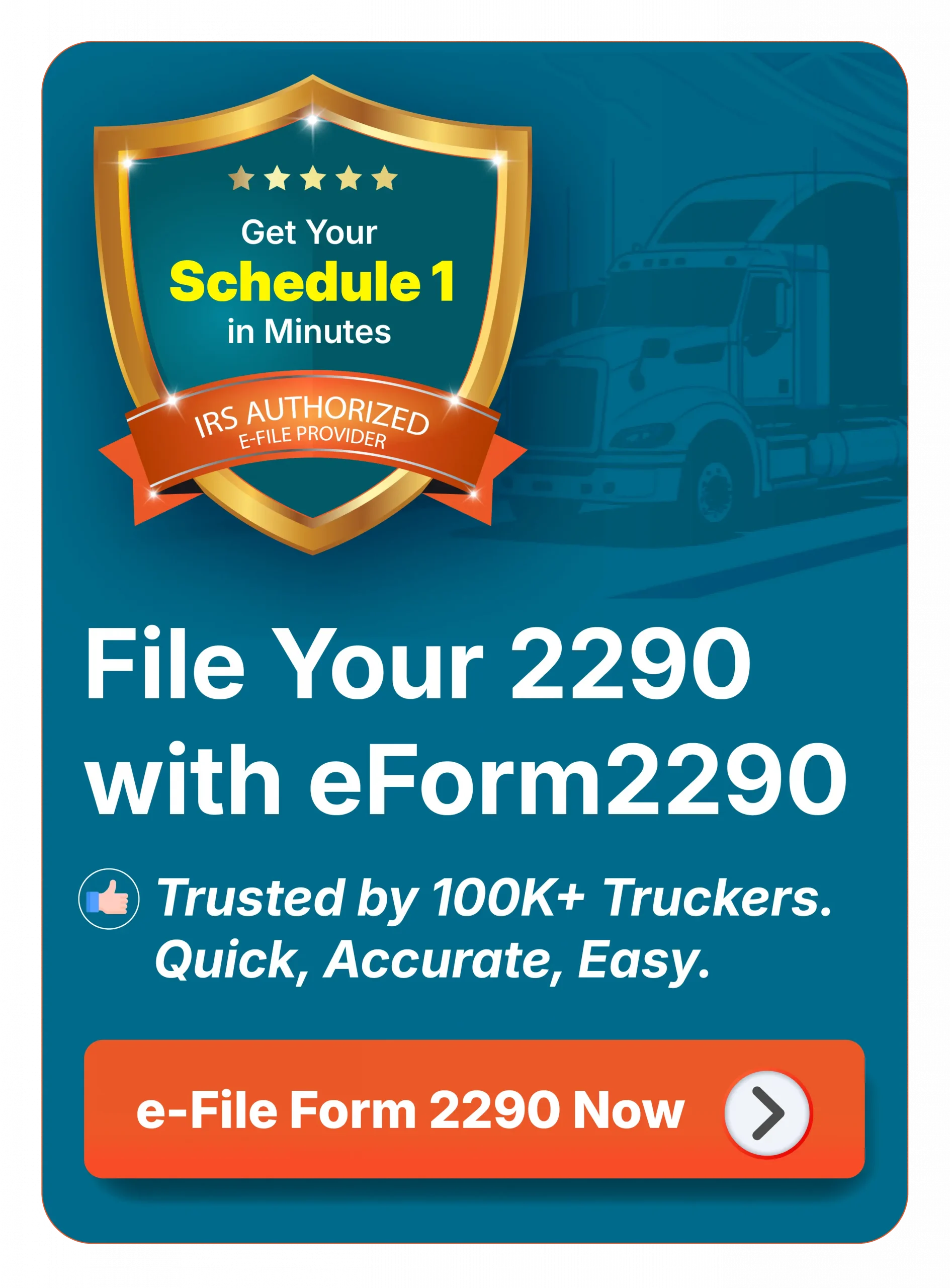IFTA Calculator - Calculate your Mileage and Fuel taxes for IFTA

Before diving into how an IFTA mileage calculator works, it’s important to understand what IFTA is all about.
The International Fuel Tax Agreement (IFTA) is a cooperative agreement among U.S. states and Canadian provinces that makes fuel tax reporting easier for commercial carriers. If your fleet operates across multiple jurisdictions, you’re required to track where you drive and your fuel usage.
That’s where an IFTA mileage calculator comes in handy. Also known as IFTA miles, it helps you break down your miles per jurisdiction and estimate your fuel tax liability accurately—saving you time and helping you stay compliant with quarterly filings.
What are IFTA miles?
IFTA miles, or International Fuel Tax Agreement miles, are the total distance your qualified commercial vehicle travels in any state or province that’s part of the International Fuel Tax Agreement (IFTA) during a given quarter. This includes all mileage and not just your regular haul trips—whether your truck is loaded, empty, on a deadhead run, heading to the shop, moving around the yard, or even on personal errands.
These miles are used to calculate your IFTA fuel tax liability. Each jurisdiction uses your IFTA mileage data, along with your fuel purchase records, to determine whether you owe fuel tax or qualify for a refund.
To stay compliant and avoid issues during an IFTA audit, it's important to track IFTA miles accurately. Most carriers use trip sheets, odometer readings, or electronic logging devices (ELDs) to record mileage per jurisdiction.
What is an IFTA state mileage calculator?
An IFTA state mileage calculator is a tool that helps truck drivers and carriers track and calculate the miles driven in each state or province for IFTA reporting.
To use the calculator, you typically need to provide:
- The start and end points of each trip
- Fuel purchase records
- Additional details like vehicle type and travel dates (if required)
The calculator processes this information to calculate your total IFTA miles by jurisdiction. This data is crucial for IFTA compliance, since fuel taxes must be paid in every state or province where your vehicles operate.
How does an IFTA fuel mileage calculator work?
An IFTA fuel mileage calculator helps commercial truck drivers and carriers determine their fuel usage and mileage for each state or province they travel through. It uses your recorded miles and fuel purchased or consumed per jurisdiction to calculate your fuel tax liability.
Here’s how it works:
- It calculates your average fuel mileage for the quarter.
- It determines how much fuel tax you owe to each state based on miles driven and fuel used.
- If you’ve underpaid, you’ll owe the difference.
- If you’ve overpaid, you’ll receive a refund or credit.
This tool simplifies IFTA reporting by automating the complex calculations required for compliance.


How to calculate IFTA mileage?
There are two main ways to calculate your IFTA mileage.
1. Manual Calculation:
You’ll need to keep detailed records of the miles you drive in each state or province during the reporting period. Also, track every fuel purchase made in each jurisdiction. Using this data, you can determine the fuel tax owed to each state or province and compare it with the taxes you’ve already paid. While accurate, this method can be time-consuming and error-prone too.
2. Using an IFTA Mileage Calculator:
The simpler and faster option is to use an IFTA mileage calculator. It automatically calculates your IFTA miles by jurisdiction, calculates your tax liability, and also identifies any credits or refunds you can claim. This method saves you time, reduces errors, and makes the entire filing process less stressful.
What information do you need to use an IFTA calculator?
Using an IFTA calculator can save you time and reduce errors—but to get accurate results, you'll need to have the right information. Here's what you'll need before you get started:
- Miles driven in each jurisdiction: Track the total distance your vehicle traveled in every state or province during the reporting quarter.
- Fuel purchases by jurisdiction: Record how much fuel you bought in each location, along with receipts or logs for verification.
- Fuel types used: Specify whether your vehicle runs on diesel, gasoline, propane, or another fuel type.
- Total fuel consumed: Note the total fuel usage for the entire reporting period.
- IFTA tax rates: Use the current tax rates for each jurisdiction you operated in. These rates vary and are updated quarterly.


Frequently Asked Questions on IFTA Miles
What does base jurisdiction mean?
Your base jurisdiction is the state or province where your vehicle is registered and where you maintain operational records. It acts as your "home base" for IFTA reporting and handles the processing and distribution of your fuel tax returns.
Who needs to file IFTA?
You must file IFTA if you operate a qualified motor vehicle that travels in two or more IFTA member jurisdictions (most U.S. states and Canadian provinces). Instead of filing separate fuel tax reports for each state or province, IFTA lets you submit one consolidated return each quarter through your base jurisdiction.
What’s the difference between IFTA miles and non-IFTA miles?
IFTA miles include all miles driven in IFTA member states or provinces—whether loaded, empty, or deadhead.
Non-IFTA miles refer to the distance your vehicle travels in areas that aren’t part of the International Fuel Tax Agreement. This includes places like Alaska, Hawaii, the District of Columbia, Mexico, and several Canadian territories such as Yukon, Northwest Territories, and Nunavut.
While these non-IFTA miles aren’t used directly in fuel tax calculations, they still count toward your total miles for determining your vehicle’s fuel efficiency (e.g., miles per gallon, or MPG).
What is an IFTA-qualified vehicle?
IFTA applies to commercial motor vehicles that regularly cross state or provincial lines. A vehicle is classified as IFTA-qualified if it meets any of the following criteria:
- It has three or more axles, regardless of weight.
- It has two axles and a gross vehicle weight exceeding 26,000 pounds (11,797 kilograms).
- It is used in combination, and the registered gross vehicle weight of the combination is over 26,000 pounds.
- It is not a recreational vehicle.
- The vehicle must operate in two or more IFTA member jurisdictions, which include most U.S. states and Canadian provinces.



